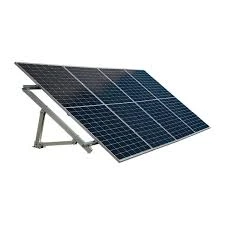Exploring Off-Grid Solar Power Solutions for Sustainable Energy Independence
Off-Grid Solar Power Systems Harnessing the Sun for Energy Independence
In an era where energy demands are soaring and environmental concerns are at the forefront of global discussions, off-grid solar power systems have emerged as an innovative and sustainable solution. These systems allow individuals and communities to harness solar energy, enabling them to produce their own electricity independent of traditional power grids. This article delves into the advantages, components, and considerations of off-grid solar power systems.
Understanding Off-Grid Solar Power Systems
Off-grid solar power systems are designed to generate and store electricity for use in locations not connected to the mains electricity grid. These setups are especially beneficial for remote areas where extending the grid is impractical or too expensive. By utilizing solar panels, which convert sunlight into electricity, off-grid systems provide a clean and renewable energy source.
Key Components of Off-Grid Solar Systems
A typical off-grid solar power system consists of several essential components
1. Solar Panels These are the heart of the system, collecting sunlight and converting it into electricity. The number and size of panels required depend on the energy needs of the user.
2. Battery Storage Since solar energy generation is not constant throughout the day, batteries are crucial for storing excess energy produced during sunny hours. This stored energy can be used during nighttime or cloudy weather.
3. Inverter An inverter converts the direct current (DC) generated by solar panels and stored in batteries into alternating current (AC), which is the form of electricity used by most household appliances.
4. Charge Controller This component regulates the voltage and current coming from the solar panels to ensure that batteries are charged appropriately without being overcharged or discharged too much, which can significantly reduce battery lifespan.
5. Backup Generator While not always included, many off-grid systems have a backup generator to provide additional power during prolonged periods of low sunlight or heavy energy usage.
Advantages of Off-Grid Solar Power Systems
off grid solar power system

1. Energy Independence One of the primary benefits of off-grid solar systems is the autonomy they provide. Users are less vulnerable to fluctuations in energy prices and power outages, fostering a sense of energy independence.
2. Environmental Impact By relying on renewable solar energy, off-grid systems reduce dependence on fossil fuels, leading to lower carbon emissions and a smaller environmental footprint.
3. Cost Savings Although the initial investment in off-grid solar technology can be substantial, the long-term savings on energy bills can be significant. Over time, the reduced reliance on traditional power sources can lead to financial savings.
4. Scalability and Flexibility Off-grid systems can be easily tailored to meet specific energy needs. Users can start with a small setup and gradually expand as their energy requirements grow.
Considerations for Off-Grid Solar Power Systems
While off-grid solar power systems offer numerous benefits, potential users must consider several factors
1. Initial Costs The upfront investment in solar panels, batteries, and other components can be high. However, exploring grants, incentives, and financing options may alleviate some of the financial burden.
2. Energy Needs Assessment Understanding one’s energy consumption is crucial for designing an effective off-grid system. An accurate assessment helps in selecting the right size and type of components.
3. Maintenance Regular maintenance of the solar panels and batteries is essential to ensure efficiency and longevity. Users should be prepared for these responsibilities.
4. Weather Variability Energy production from solar panels is inherently dependent on weather conditions. Users may need to implement strategies to manage energy usage during periods of low sunlight.
Conclusion
Off-grid solar power systems represent a promising path towards sustainable energy independence. By understanding their components, advantages, and considerations, individuals and communities can make informed decisions about investing in solar technology. As the world moves towards cleaner energy solutions, off-grid solar systems present a viable opportunity to harness the sun’s power, reduce environmental impacts, and gain greater control over energy sources.
-
Unlocking Energy Freedom with the Off Grid Solar InverterNewsJun.06,2025
-
Unlock More Solar Power with a High-Efficiency Bifacial Solar PanelNewsJun.06,2025
-
Power Your Future with High-Efficiency Monocrystalline Solar PanelsNewsJun.06,2025
-
Next-Gen Solar Power Starts with Micro Solar InvertersNewsJun.06,2025
-
Harnessing Peak Efficiency with the On Grid Solar InverterNewsJun.06,2025
-
Discover Unmatched Efficiency with the Latest String Solar InverterNewsJun.06,2025







